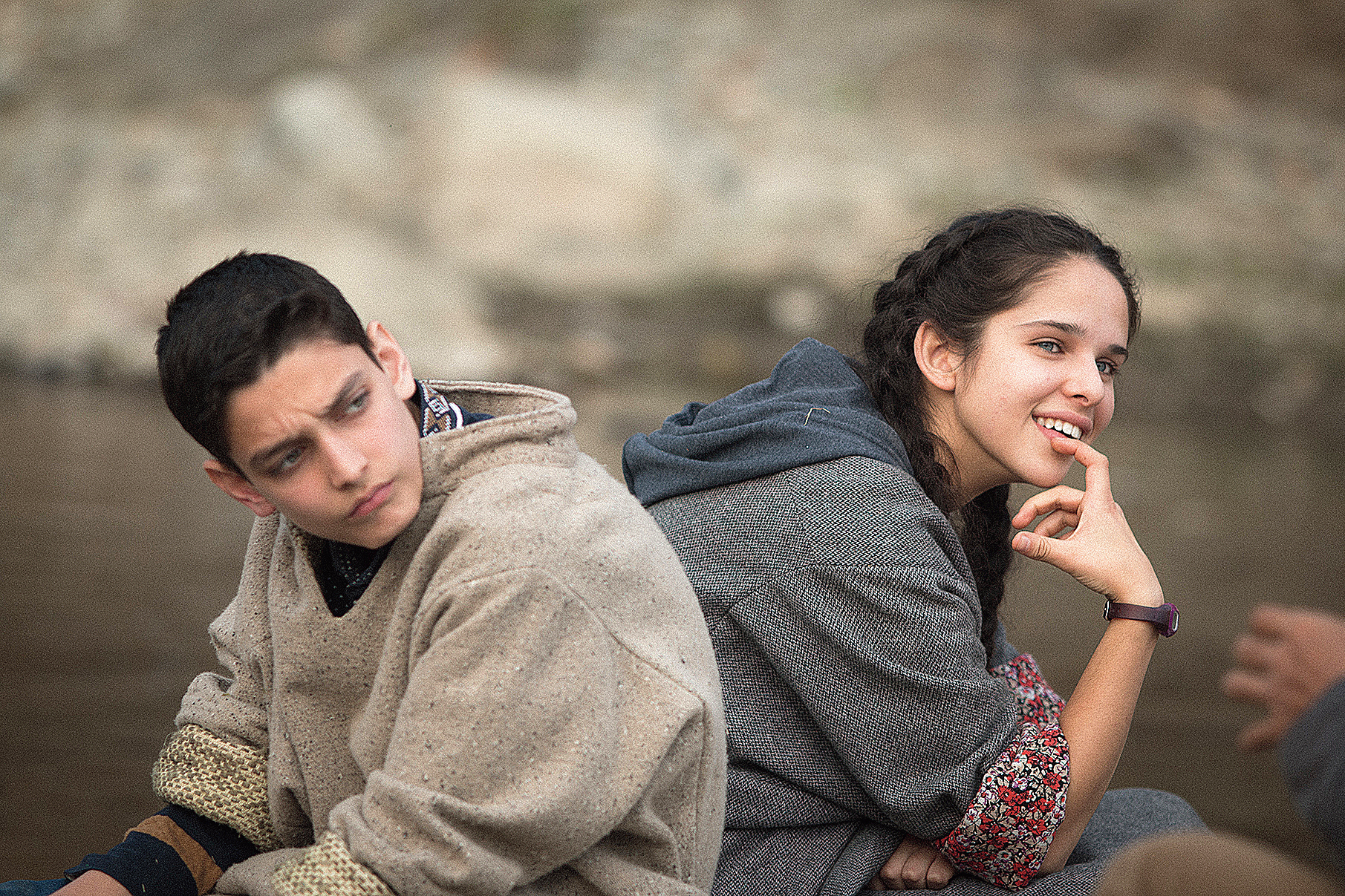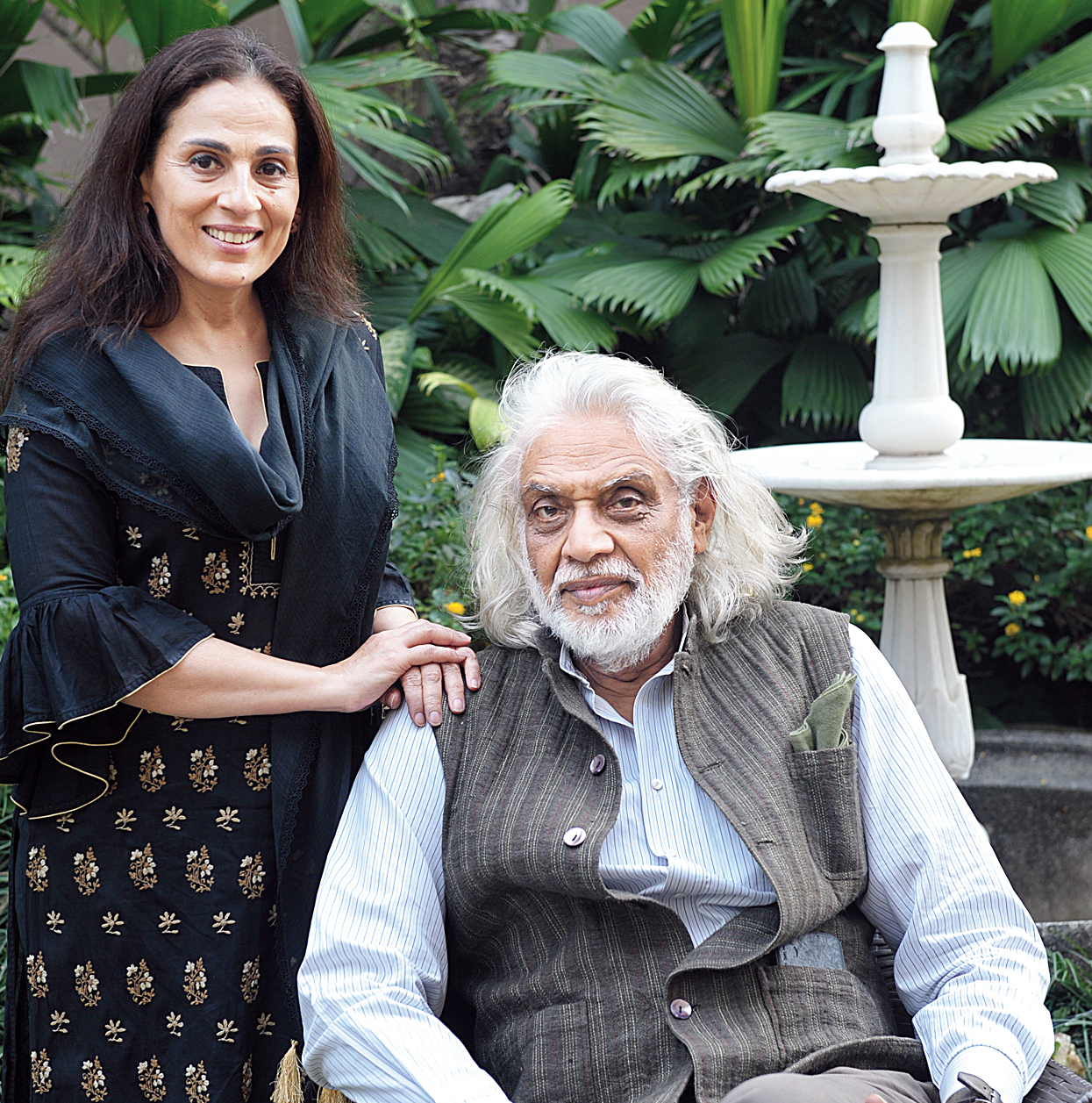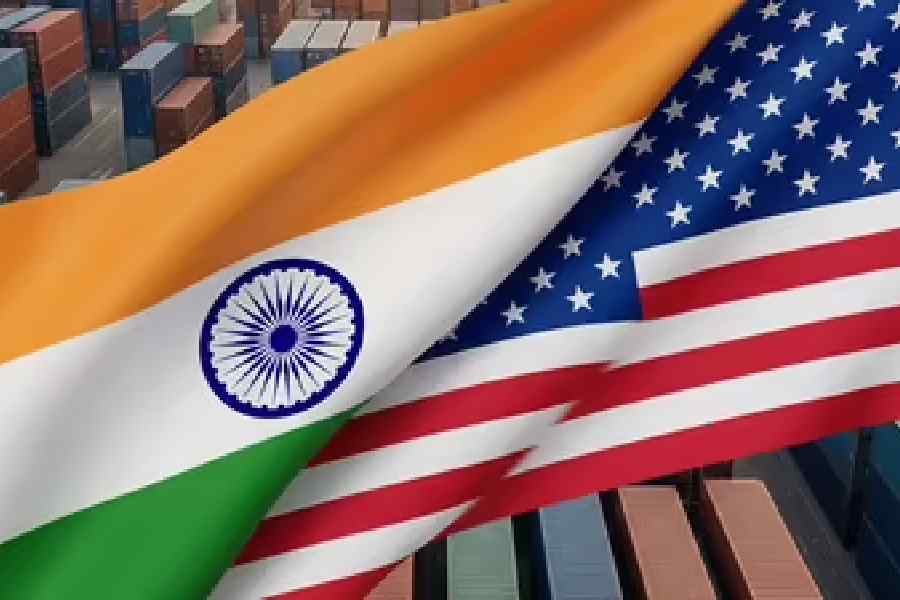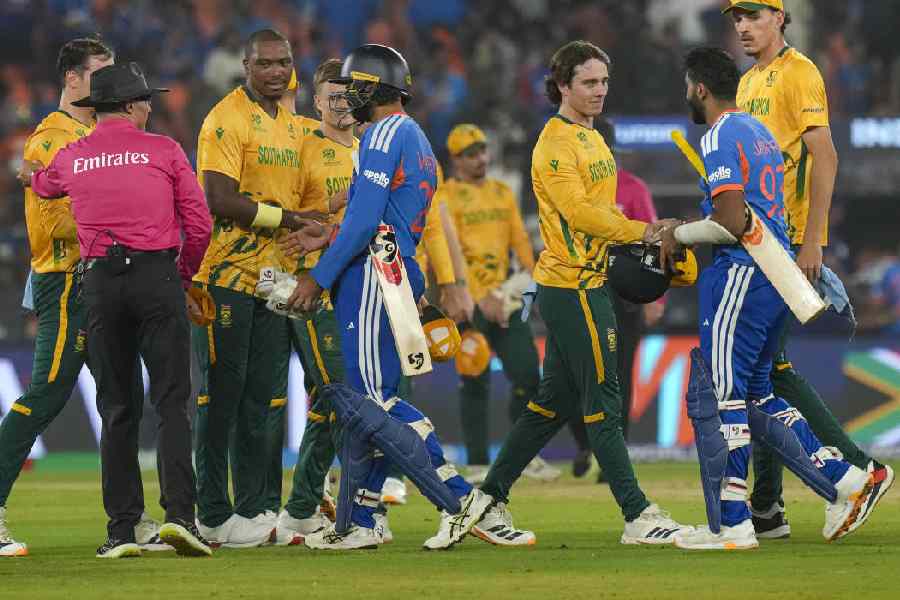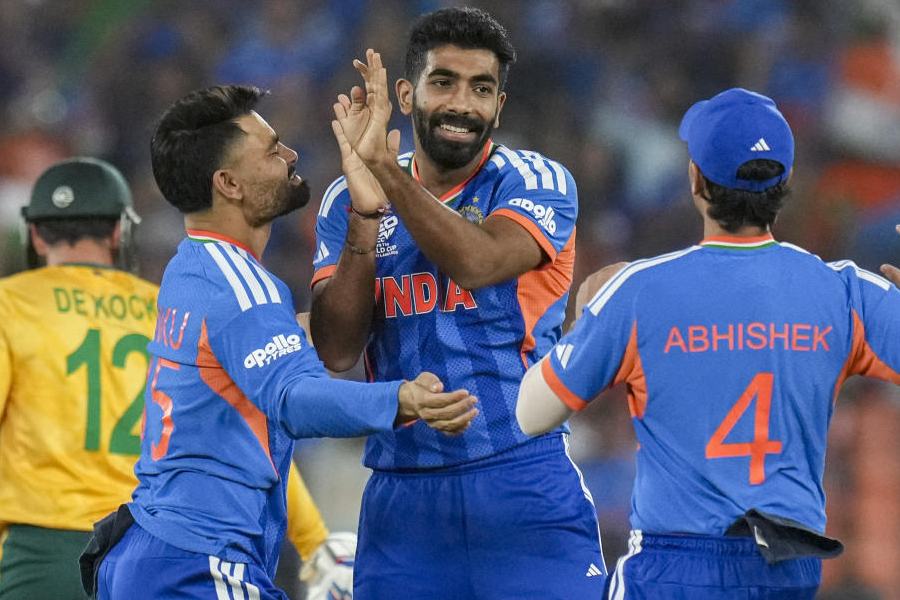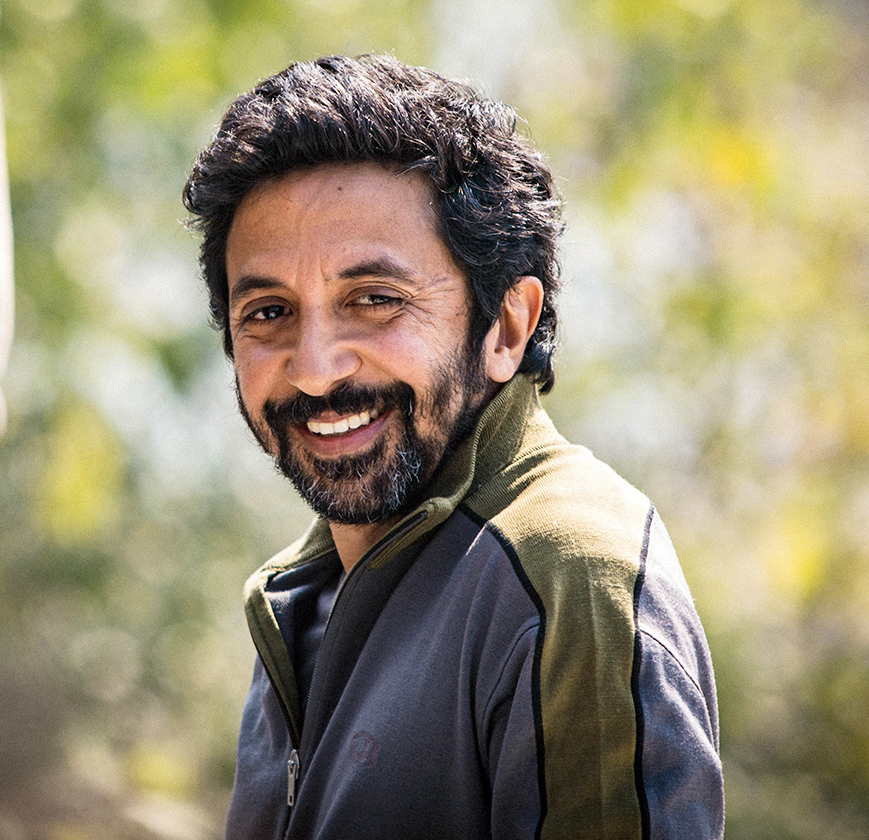
Filmmaker Ashvin Kumar The Telegraph picture
Earnest faces amidst hardened ones. A father voicing concern for his son’s future against the backdrop of political rabble-rousing. Kitchen gardens sprouting chilli and brinjal in a land so often marred by gunfire and stone-pelting. To some, Kashmir may be synonymous with the ravages of violation, provocation and confusion, but look closely and you will see ordinary lives with ordinary desires.
That’s what the stories tell us, those born out of the troubled soil and air, minds and bodies locked in a decades-old conflict. Of course, only a handful of the narratives escape to be heard or seen the majority of them gets extinguished in the trenches of fear and proscription.
Filmmaker Ashvin Kumar is determined to make Noor heard. A British Kashmiri teen, Noor has come to India in search of her roots and also her father. In the process, she befriends Majid, who has also lost his father. Their “charming love story”, as Kumar likes to call it, has been long canned and edited as No Fathers in Kashmir. It’s waiting to be told to the world but for one hurdle, a crucial one. The Central Board of Film Certification, or CBFC, has allowed for its release only with an “A” certification. This means the teenage population — that whole chunk of restive youth for whom the tale is woven — cannot experience it.
“There are no legal grounds for the ban; this is plain harassment,” says Kumar, angrily. He believes that an “A” stamp in this case is as good as a ban, and that the harassment, too, has become a pattern.
In 2010, Inshallah, Football, his first film on Kashmir, ran into similar trouble, but then the documentary went on to win a National Award — best film on social issues. In 2012, his feature-documentary Inshallah, Kashmir ran into trouble. It too won a National Award, for the best investigative film.
“This is the third time in a row. Is this some kind of a joke,” Kumar says, exasperated, adding that the board’s treatment only strengthens his resolve to steer his film clear. “I will not accept any cuts; I will go to court if need be,” he tells The Telegraph over phone from Mumbai.
Following the CBFC verdict, the filmmaker approached the Film Certification Appellate Tribunal (FCAT), the statutory body for appeal, but not before shooting off an open letter to CBFC chairman Prasoon Joshi. “Shouldn’t narratives of compassion be allowed to replace those of hate,” Kumar asked Joshi.
Inshallah, Football revolves around a former Pakistan-trained militant, Bashir, and his football-loving son, Basharat. The young Basharat dreams of going to Brazil but is denied a passport because of his father’s past. The story, told with much simplicity and sensitivity, is one of transformation and hope. Basharat ultimately gets his passport to play football like he wishes to — it is his liberation actually. Towards the film’s end, Bashir is shown speaking to “Vikas Sir” — the army officer in whose fearful custody at a detention camp he spent 18 long months — on the phone with confidence and goodwill, even promising to visit the latter at his new station in Calcutta.
But what is it in No Fathers in Kashmir that must be so hidden? “Nothing that isn’t clearly confirmed or is not in the public domain,” Kumar says; anger makes him open up a bit more. “Mention the word ‘Kashmir’ and they begin to have seizures… We need to get over this national trauma in our brains.”
Why the CBFC does what it does is anyone’s guess. Also, it has been often criticised for its manner of functioning, with many in the film fraternity including Kumar terming it “high-handedness and bullying”. Says Kumar, “I wasn’t allowed to say anything at the screening. I had walked in expecting to present my case, but they simply handed me the verdict and asked me to leave. That again is illegal.”
It would seem that the certification process for films that don’t roll down the regular path actually follows a regular path — the certification board objects, the makers challenge the decision, and after a protracted struggle, the films are cleared. Often, these films also go on to win accolades, both at home and abroad. What then is gained by denying these artistes a democratic certification procedure, and whose gain is it anyway?
“The board’s view on films and filmmakers is extremely hostile. It’s like you are guilty until you are proven innocent,” continues Kumar. “I cannot understand why they do not have a lawyer sitting on the committee to explain that their verdicts are illegal. There should have been a self-correction system within the CBFC,” he points out. “So every time you submit a film, you can be sure you will not be treated like an artiste, but like a criminal. Mostly they are people who have a very narrow view of the world, people who get offended easily.”
In his open letter to Joshi, Kumar drew attention to the lyricist’s own song in the 2006 film, Rang De Basanti. “Your iconic song,” he wrote, “about the irreverence and exuberance of youth Masti ki pathasala is a classic. The film Rang De Basanti upheld political realities through a disarming story of young people coming-of-age. It was a breakthrough for Indian cinema both for its critique of the state and the sleight of hand by which it was delivered…”
In the meantime, the FCAT verdict is awaited. The director had requested for a quick decision, although it has been over three weeks since the application was filed.
“If the FCAT doesn’t release it, we will appeal to the high court… It will take longer but we will get it passed the way it is supposed to be passed,” says a confident Kumar.
A movie delayed, but not a movie denied, or so he hopes.

